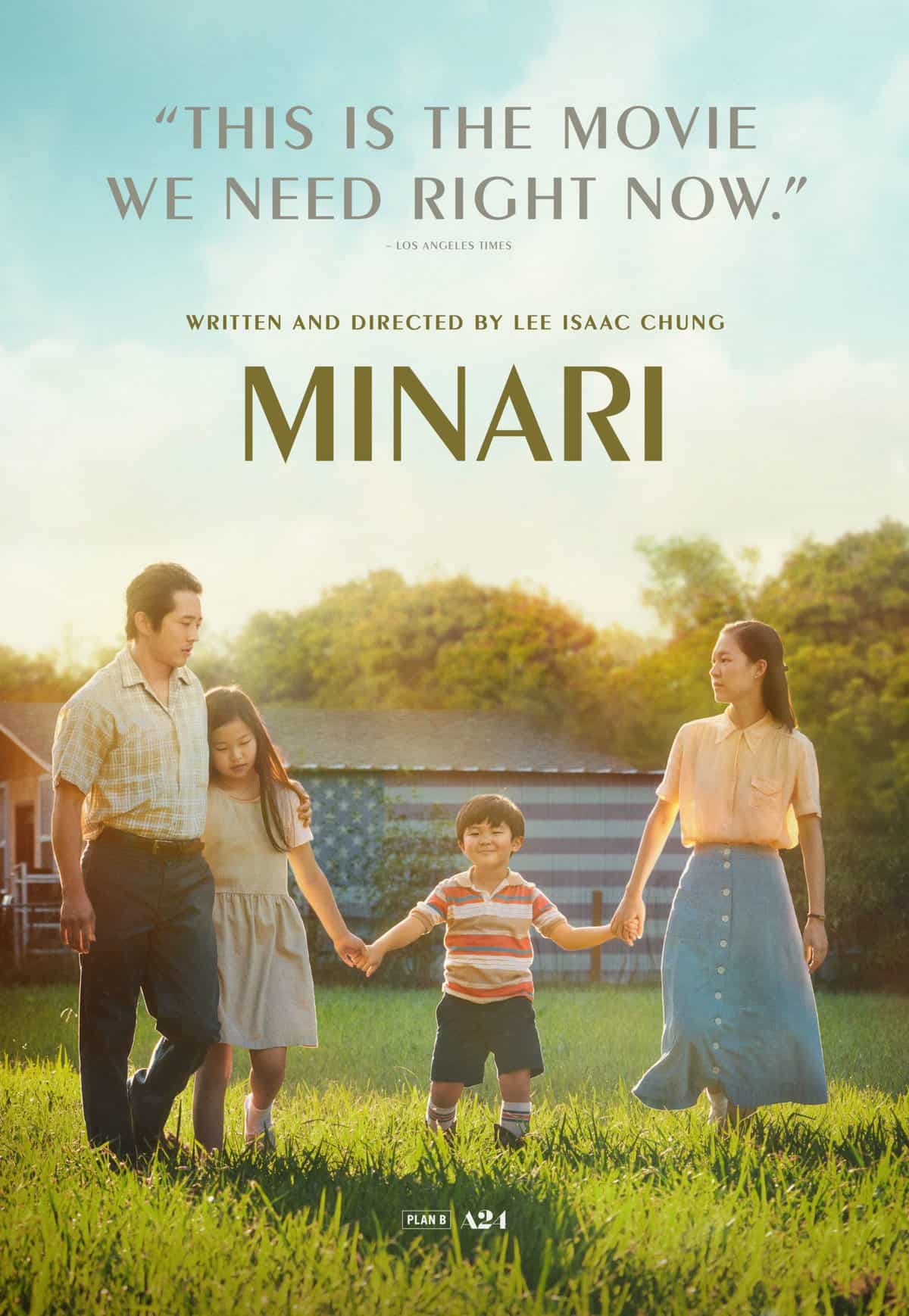 Minari is the story of a Korean-American family’s journey of belonging and flourishing as they start a new life on a farm in Arkansas. An American film written and directed by Lee Isaac Chung, it stars Steven Yeun of Walking Dead fame, Han Ye-ri, and Youn Yuh-jung.
Minari is the story of a Korean-American family’s journey of belonging and flourishing as they start a new life on a farm in Arkansas. An American film written and directed by Lee Isaac Chung, it stars Steven Yeun of Walking Dead fame, Han Ye-ri, and Youn Yuh-jung.
Already a wave of articles and opinion pieces has arisen, focusing largely on the film’s depiction of a grossly under-represented demographic of the American immigrant story. Representation is what drew me to see it, and I enjoyed a multi-sensorial experience: hearing dialogue move seamlessly between English and Korean and a blend that some of us call “Konglish”; seeing the familiar mix of stainless steel bowls, chopsticks, and Corelle dishware holding homemade banchan; reliving the unmistakable smell of dried chili powder and anchovies and even the scent of my grandmother when the onscreen grandmother opens her luggage, freshly arrived from Korea.
Also known as water celery or water dropwort, minari is a water plant common to Korean and other East Asian cooking. In Korean cuisine it is most often served as a namul, a vegetable side dish prepared with sesame oil, garlic, and other seasonings. If you’ve eaten bibimbap, which is now commonly referred to as a Korean rice bowl, you have likely enjoyed minari without knowing it—and without wondering what stories lie behind the meal.
Minari the film extends such an invitation to viewers, beckoning us to enter into a different version of the American story, one that is both common and rarely depicted. The film also offers a challenge—to see immigration as something that is alive and present as well as isolating and othering.
I am 50 years old, and even though my family immigrated to the U.S. when I was a baby, I learned about immigration as history—rather than an ongoing present reality—through the lens of Ellis Island and a wave of European immigration. Because of their race, generations of Irish, Italians and Germans would instantaneously become American, which was synonymous with “white.” They were the hungry and the poor, the “huddled masses yearning to breathe free.”
It wasn’t until an AP U.S. History class in high school that I learned a tiny bit about the Chinese Exclusion Act of 1882 and the Hart-Cellar Act of 1965, where the angle was less about immigration and more about the dangerous foreign influences pushing up against U.S. shores. Asians from across the continent were not cast as those yearning to breathe free but as dirty, untrustworthy, Communist, unable to fully assimilate into U.S. culture. I never learned about Angel Island, but I learned about the Japanese Internment and how “we” looked like the enemy even though “we” were U.S. citizens and legal residents.
Asian Americans have often been referred to as both the “model minority” and the perpetual foreigner. As if to perfectly illustrate this latter point, although Lee Isaac Chung was born in Denver and is an American citizen, Minari was nominated for a Golden Globe Award in the category of best foreign language film—simply because English comprises less than 50 percent of the film’s dialogue, despite the fact that the U.S. does not have an official language. Even in creative pursuits, Asian Americans are reminded that our existence is bound by certain rules and categories that keep American identity at arm’s length. Our immigration and even citizenship status do not include us fully in the American story.
As one who still has a rudimentary grasp of the Korean language and maintains cultural practices that my parents brought with them in the early 1970s, I am deeply grateful that assimilation has not meant full erasure of the cultural gift of being an immigrant. While constant reminders that I am not a “real” American are exhausting and dangerous because they feed anti-Asian racism and xenophobia, the flipside is that God and I both know my belovedness doesn’t rely on how American or white I become but rather on how God sees me.
Americans who are “just American” and have lost cultural connections to their immigrant roots have lost a part of themselves, because language, food, and cultural practices all hold meaning and story. Isn’t that part of the life we live as Christians? The practices of communal worship, communion, and even prayers that are spoken in different languages across the ages bind us together and tell a story of faith. We pray words that Jesus spoke more than 2,000 years ago, and in doing so we embrace, remember, and build our lives on the lived experiences of a Jewish refugee, and that matters—or at least it should.
Minari will not resonate with everyone, because even though it is an American story, some viewers will still see it as foreign and will not recognize that the immigration it depicts is a present reality. What will the church make of its nomination as a foreign language film? How welcoming can a church be that is often more interested in Americanizing the faith than standing shoulder to shoulder, in wonder and shared heritage, with “a great multitude … from every nation, from all tribes and peoples and languages … before the throne and before the Lamb”?

Kathy KyoungAh Khang is a writer, speaker, and yoga teacher based in the north suburbs of Chicago. She is the author of Raise Your Voice: Why We Stay Silent and How to Speak Up (IVP, 2018) and Alabaster Guided Meditations, Psalms Vol. 1 + Vol. 2 (IVP, 2020), a contributing editor for Sojourners magazine, and a contributing author of More Than Serving Tea (IVP, 2006). She blogs at www.kathykhang.com, tweets and Instagrams as @mskathykhang, posts at www.facebook.com/kathykhangauthor, and partners with other bloggers, pastors, and Christian leaders to highlight and move the conversation forward on issues of race, ethnicity, and gender within the Church.
Ms. Khang has a BS in journalism from Northwestern University’s Medill School of Journalism and worked as a reporter in Green Bay and Milwaukee, WI, before working more than two decades in parachurch ministry. She currently serves as the vice-chair for the board of Christians for Social Action.


